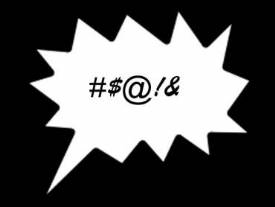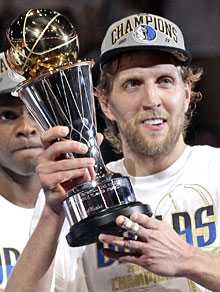Fun Observations
Subscribe to our Newsletter
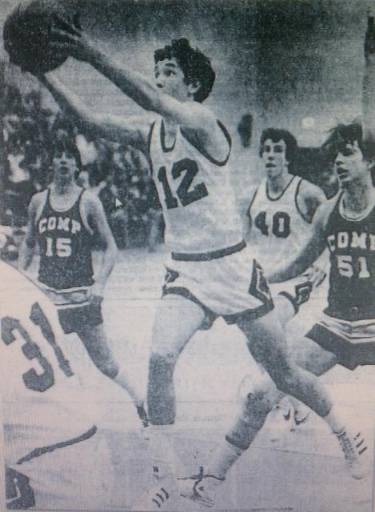
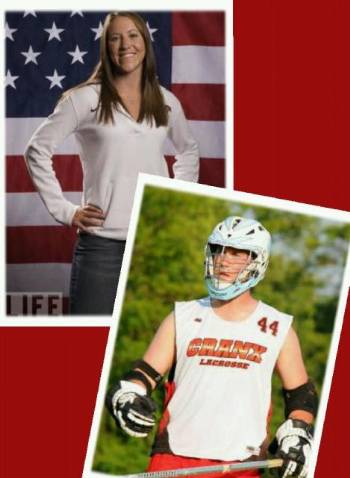
It must not be easy for Bryan Duggan. Certainly from the outside looking in, the life of the Cranx defenseman seems rather Rockwell-esque. Raised by wonderful parents in a family-comes-first home, Bryan was encouraged and supported in every phase of life: academic, athletic, social. At Danvers High School the handsome and popular student-athlete excelled as a three sport star in football, hockey, and lacrosse. Coupled with his high honor roll status, Bryan continued his lacrosse career at Bowdoin University where he became an All-American and All-Academic defenseman before graduating in 2006.
These days, Bryan is climbing the corporate ladder at a prestigious insurance company by day, and terrorizing Cranx opponents on the lacrosse field at night. He and his college sweetheart, Kate, are engaged to be married soon. A still handsome and athletic 28 year old, Bryan is admired for his intelligence and good-natured personality as well as his continued athletic talents. His teammates voice nothing but praise for him. His colleagues admire his smarts and work ethic. And his beautiful bride-to-be adores him like Aphrodite adored Adonis.
But taking a much closer and keener look at the man behind the lacrosse mask, and it seems the mask can only hide so much. You see, Bryan has a younger sister named Meghan. And as much as a Norman Rockwell painting can illustrate a perfect picture filled with wonderment and joy, there's usually always some indication of internal angst and struggle when peering in a little deeper. For as long as 24 year old Meghan has been around, she seems to have always been unintentionally the cause to Bryan's affect of angst. Kid sister in her own right, has quite an impressive resume herself. How impressive? Well let's just say that compared to Bryan's accomplishments, Meghan is a redwood tree next to big brother's miniature bonsai. Also a three sport star in prep school, Meghan took her ice hockey talents to perennial powerhouse University of Wisconsin. There the awards and hardware came at such a rate that back at the Duggan house in Danvers, Bob and Mary had to turn Bryan's room into a showroom for their daughter's plaques and trophies:
In her senior season at UW, Meghan led the nation in points (87) and was second on the team and in the nation in goals (39). She also tied for the national lead in assists (48). But it was obvious to Meghan and the rest of the hockey world that the collegiate stage simply wasn't big enough for her talents. So Meghan also starred on the U.S. Women's National Team for four years, and ho-hum...helped lead the 2010 Olympic team to the silver medal. And while awaiting to play in the 2014 Olympics, Meghan will occupy her free time by going to medical school.

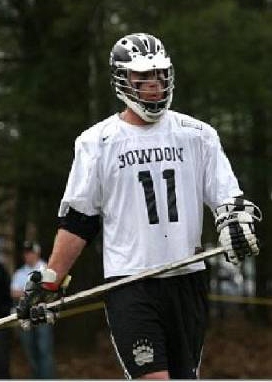
Growing up Bryan was well taught early on about the values of family. Of unconditional love and support. Of what it means to share and be unselfish. When Bryan would play hockey as a 10 year old, he'd let his baby sister tag along on her own hockey skates. As the years passed on, and Bryan's passion for playing hockey grew and grew, his sister's did as well. But it was Meghan's talent that caught up to and eventually surpassed Bryan's. In spades (and hearts, and diamonds...) Bryan's childhood dreams of playing in the NHL became as probable as Kim Kardashian being accepted into Harvard. All the while, little Meghan was primed, locked and loaded for hockey stardom.
When asked about her start in hockey, Meghan invariably brings up the memories and images of her big brother allowing her to play with him and the boys way back when. She speaks with admiration about her brother, and credits him for much of her success. And Bryan reciprocates the feelings he has for Meghan. She's his hero he says. He couldn't be prouder.
It must not be easy for Bryan Duggan. Being out-performed, out-accomplished, and out-recognized by your kid sister. A kid sister who you love dearly, who you continue to counsel, and offer both unconditional support and protective, brotherly advise.


